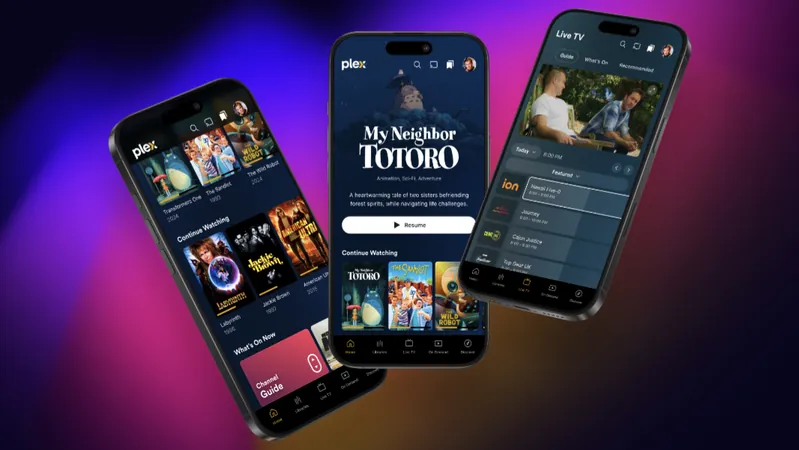
How This Product Manager Scored a $300,000 Job at Amazon – And What He Regrets About His Résumé!
2024-11-18
Author: Sophie
Siddharth Kashiramka's Journey to Amazon
When Siddharth Kashiramka joined Amazon in 2022 as a product manager specializing in AI projects, he believed his résumé truly captured his impactful career. However, he now reflects on this important document and recognizes three key areas for improvement.
Background and Preparation
Having spent six years in his post-Masters career, Kashiramka held notable positions as a product manager at Capital One and as a consultant at PwC. Although many of his colleagues transitioned to Amazon, he was reluctant to relocate from his home in Virginia to Seattle. Fate intervened when an opportunity in AI presented itself at Amazon, allowing him to stay in his current location.
To prepare for the interview process, Kashiramka proactively networked with peers who had made similar career moves and invested a month in mock interviews through career service platforms. This diligence paid off when he successfully secured a position at Amazon, with a lavish compensation package of around $300,000, which included base salary and stock options.
The Role of Résumés
As a hiring manager himself, Kashiramka emphasizes that while résumés represent just a fraction of the overall hiring process, they can wield significant influence. He recounted an instance where two equally qualified candidates were in the running for a position. Despite both candidates clearing all interview rounds, the final offer went to the individual whose résumé was more polished.
Key Components of a Successful Résumé
Looking back at his own résumé, Kashiramka identifies three standout components that he believes contributed positively to his success:
1. Impact Focus
Each job description in his résumé highlighted not only the role but also the outcomes and impacts of his work, establishing a clear narrative of his contributions.
2. Unique Summary
Kashiramka’s résumé featured a deeply personal summary that was tailored to him, something he values highly. He now plans to enhance this section by including his more recent external mentorship engagements and contributions to academic journals.
3. Keyword Variety
By incorporating a diverse range of action-oriented keywords, such as 'leveraged,' 'delivered,' 'established,' and 'collaborated,' he unknowingly optimized his résumé for applicant tracking systems (ATS), which sift through documents for relevant terms.
Lessons Learned
However, despite its allure, Kashiramka's résumé was not without flaws. In hindsight, he identified three major changes he would implement:
1. One-Page Résumé
"Based on my experience, I believe a résumé should be concise—ideally one page," he stated, recognizing this element as a red flag in his own document. In his previous roles at PwC and Capital One, he maintained a one-page structure which he aims to revert to in the future.
2. First-Person Voice
Kashiramka cited using third-person language as a mistake, remarking that it feels too detached. "It just seems very pompous. It’s like I’m referring to someone else," he noted, suggesting a more personal touch would have improved its relatability.
3. Grammatical Precision
He acknowledged the presence of grammatical errors in his résumé and underscored the importance of attention to detail. He recommended utilizing proofreading tools and having someone else review the document for clarity.
Conclusion
Overall, Kashiramka's experience underlines the importance of crafting a well-thought-out résumé while also embracing personalization and brevity. Now a senior product manager at Amazon's Crystal City, Virginia location, his journey serves as a beacon of inspiration for job seekers navigating the competitive tech landscape, proving that even the best can continuously learn and adapt!









 Brasil (PT)
Brasil (PT)
 Canada (EN)
Canada (EN)
 Chile (ES)
Chile (ES)
 España (ES)
España (ES)
 France (FR)
France (FR)
 Hong Kong (EN)
Hong Kong (EN)
 Italia (IT)
Italia (IT)
 日本 (JA)
日本 (JA)
 Magyarország (HU)
Magyarország (HU)
 Norge (NO)
Norge (NO)
 Polska (PL)
Polska (PL)
 Schweiz (DE)
Schweiz (DE)
 Singapore (EN)
Singapore (EN)
 Sverige (SV)
Sverige (SV)
 Suomi (FI)
Suomi (FI)
 Türkiye (TR)
Türkiye (TR)